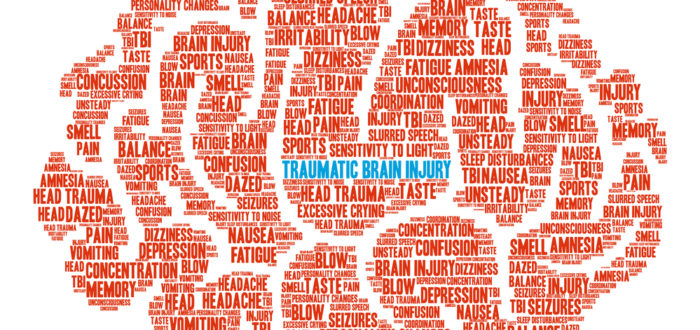A traumatic brain injury (TBI) is the result of a violent jolt or blow to your head or body. A TBI could also be caused by exposure to a violent event, such as an explosion or gunshot wound.
TBIs are a common injury seen in military veterans and service members. However, there are many causes for TBIs. The most common causes of a TBI include:
- Falls
- Firearm-related injury
- Car accident
Our understanding of TBIs and the effect they can have has grown in recent years. Doctors note that symptoms arising due to a TBI can be seen months, even years, later. A TBI can cause auditory problems, including hearing loss and tinnitus.
What is a Traumatic Brain Injury (TBI)?
Johns Hopkins Medicine defines traumatic brain injury as: “Traumatic brain injury (TBI) happens when a sudden, external, physical assault damages the brain. It is one of the most common causes of disability and death in adults. TBI is a broad term that describes a vast array of injuries that happen to the brain.”
Almost half of reported TBIs are caused by falls, followed by motor vehicle accidents. Any jolt, blow or bump that causes the head (and brain) to rapidly move back and forth can result in a TBI.
The impact or injury doesn’t have to directly hit your head. TBIs can be the result of lurching forward violently, as could potentially happen in a motor vehicle accident. You also do not need to lose consciousness to experience a TBI. Your primary medical practitioner may refer to a TBI as a concussion.
In cases where the injury or blow has primarily affected your ears, this is known as acoustic trauma. Causes of acoustic trauma could be a direct blow to your ear, or exposure to dangerous noise.
Is Hearing Loss an Indicator of TBI?
As mentioned above, sometimes the impact of a TBI can be seen years later. In some instances, hearing loss could be an indicator of a TBI.
A review published in 2018 noted that hearing loss was a commonly reported side effect of a temporal bone fracture. Per Medical News Today, your “temporal bones are two major bones in the skull, or cranium. They help form the sides and base of the skull, where they protect the temporal lobe of the brain and surround the ear canal.”
Damage to the temporal bone, given its role in protecting our sensitive auditory systems, can lead to hearing loss. However, in the same review researchers noted that hearing loss was being reported in patients who did not experience a bone fracture. In fact, up to 58% of patients who didn’t break a bone reported some hearing loss.
A further study, carried out in Taiwan, looked at 1.6 patients. The results showed that a TBI more than doubled the risk of long-term hearing loss.
What Auditory Problems can a TBI Cause?
Traumatic brain injuries can cause hearing loss, even years later. However, there are other auditory problems that a TBI can cause. These include:
- Tinnitus – This is particularly common in military veterans and service members with a TBI. One study found that “Mild TBI (TBI) is associated with up to a 75.7% incidence of tinnitus.”
- Hyperacusis – Hyperacusis, or noise sensitivity, is when some ordinary sounds can make your ears hurt.
- Hearing loss – Hearing loss resulting from a TBI can present itself years later.
Other issues may include:
- Decreased sound tolerance for certain sounds
- A feeling that your ears cannot pop (aural fullness)
- Auditory processing problems
A TBI can also affect our vestibular system. This can directly impact our balance. Some issues can include:
- Vertigo
- Dizziness
- Balance issues
Need Help? Contact Us Today!
If you have had a traumatic brain injury in the past, keep an eye on your hearing. If you notice changes to your hearing, make sure you let your doctor know about your TBI. This can help inform the correct course of treatment to help.
If you are due a hearing assessment, please get in touch with our hearing healthcare specialists. To book an appointment, call Regional Hearing and Balance Center on 208-497-3596 or click here to book a complimentary hearing assessment.


Recent Comments